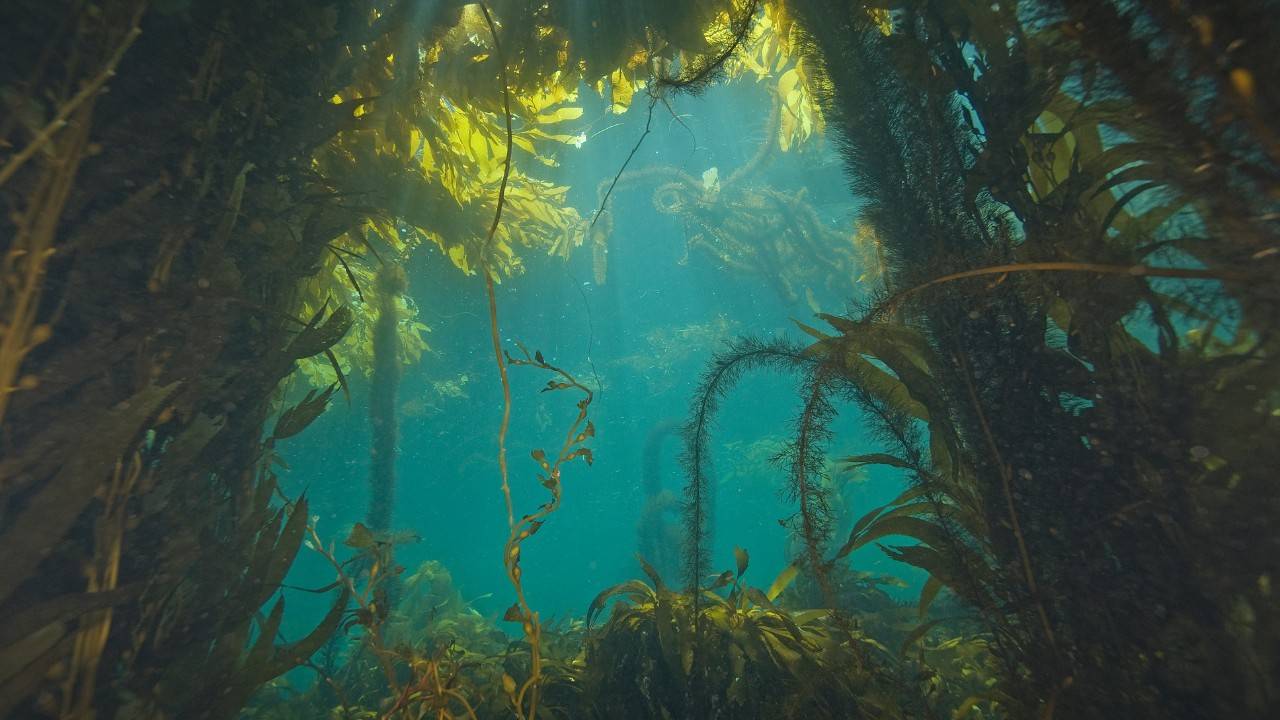In Northern California, volunteers are diving into the Pacific to save vanishing kelp forests. Among them is Joy Hollenback, who, equipped with a welding hammer, targets purple urchins damaging the kelp.
Floating on the surface, Hollenback prepares to dive. Her goal: destroy kelp-eating urchins. She humorously calls it “ecologically sanctioned mayhem.”
Hollenback, a Berkeley veterinarian, joins others in this crucial mission. Their aim is to restore bull kelp forests, devastated by 96% between 2014 and 2020. This loss also impacted red abalone and other marine life.
California is trialing multiple initiatives to preserve these marine ecosystems, threatened globally by climate change. Kelp forests, vital for ocean health, are a focus at the United Nations climate summit.
Early results of efforts like urchin culling are promising. Biologists are observing small successes in experiments that started years ago. They offer hope for reversing the devastation likened to rainforest clear-cutting.
In areas like Caspar Cove, where urchins were crushed, healthy kelp and fish have returned. At Albion Bay, biologists placed lab-grown kelp on lines, which later reached the surface and reproduced. Norah Eddy from The Nature Conservancy sees this as a breakthrough. “That’s the first time we know of that happening in an open coastal environment,” she notes. The goal is for kelp to reproduce independently.
Despite these successes, challenges remain for bull kelp’s recovery. Scientists are cautiously optimistic, as Kristen Elsmore from the California Department of Fish and Wildlife explains. The aim is to preserve existing kelp until conditions improve.
Data collection over the next three years will determine the most effective methods. California is developing its first kelp restoration and management plan.
Historically managed as a fishery, kelp will now be treated as an ecosystem. This shift reflects a deeper understanding of its ecological role. “You’re losing a whole forest, not just one species,” Elsmore emphasizes.
The plan could guide global efforts in places like Australia and Chile. The aim is for self-sustaining systems, requiring minimal intervention.
Rising ocean temperatures, partly due to “the blob” heatwave, have decimated kelp. Concurrently, a disease wiped out 90% of sunflower sea stars, purple urchin predators. This led to an urchin population boom, further harming kelp.
California closed its red abalone fishery in 2018 due to kelp loss. Red urchin harvests, more valuable than purple ones, also declined.
Bull kelp, growing rapidly to 98 feet, thrives in cool, nutrient-rich waters. Urchins have affected both bull and giant kelp species.
Restoration efforts focus on reducing purple urchins. Some chefs serve them, creating a market. “It’s for the greater good,” says Morgan Murphy-Cannella of Reef Check Foundation.
Josh Russo, Watermen’s Alliance founder, began the urchin crushing initiative. Initially using sledgehammers, divers now prefer smaller tools. They’ve cleared 80% of urchins from a section in Caspar’s Cove.
Controversy exists over the potential spread of urchin eggs through crushing. But Russo observes reduced urchin density and increased marine life in treated areas.
Natural predators like sunflower sea stars are irreplaceable. Efforts are underway to breed and reintroduce them.
The journey is ongoing. Not all cleared areas have seen kelp return, posing questions for scientists. Yet, the crushing buys time for long-term solutions.
Events attract diverse volunteers, from paralegals to landscape contractors. Hollenback joined after learning about them on Facebook. She finds purpose in this unique conservation effort.
More inspiring green news similar to this:

